ChinaEthnoExp. Part I. Urumqi, Lanzhou, XiaheMapOctober 7–27, 2014 The destination chosen for the next ethnographic expedition was a country of immense size with an equally immense history: China. 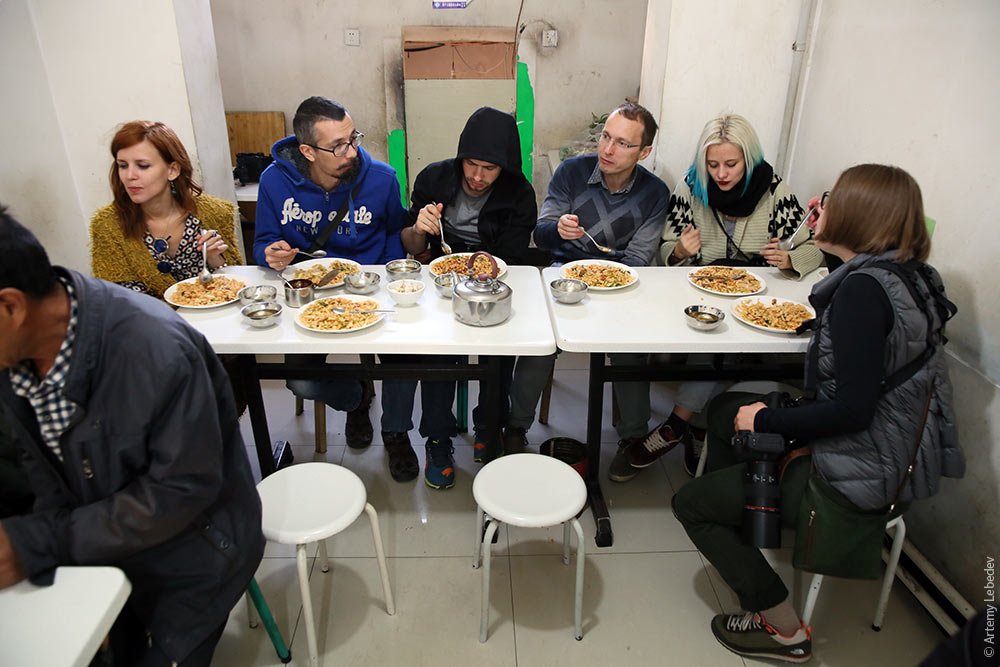 UrumqiMapUrumqi Airport receives many visitors from Russia and Kazakhstan, so all the signs are translated into Russian. 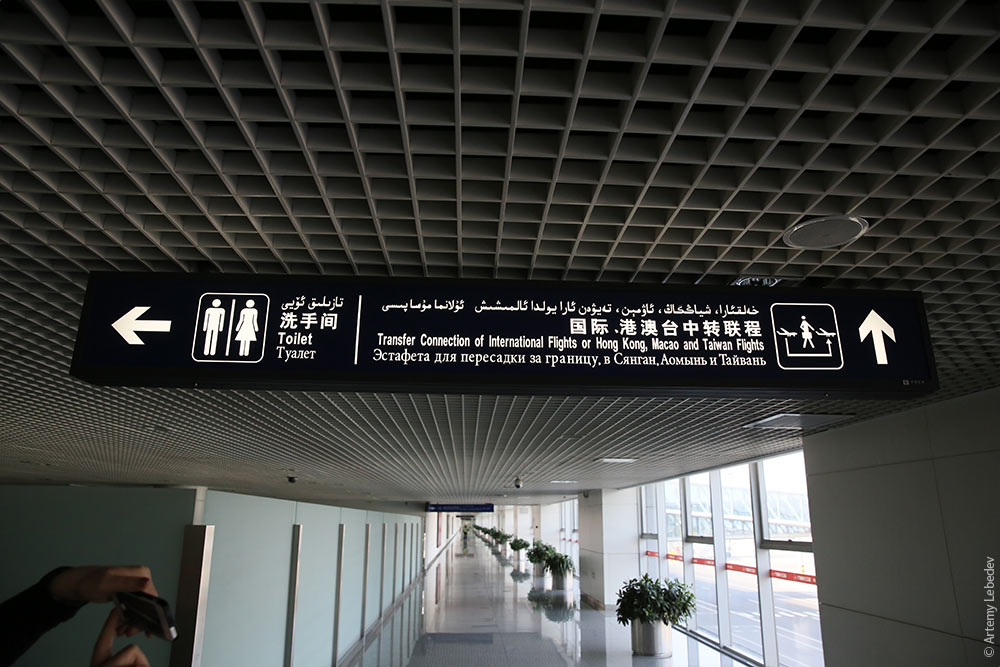 Relay to transfer abroad, to Xianggang, Aomen and Taiwan Urumqi is the main city of the Uyghurs. 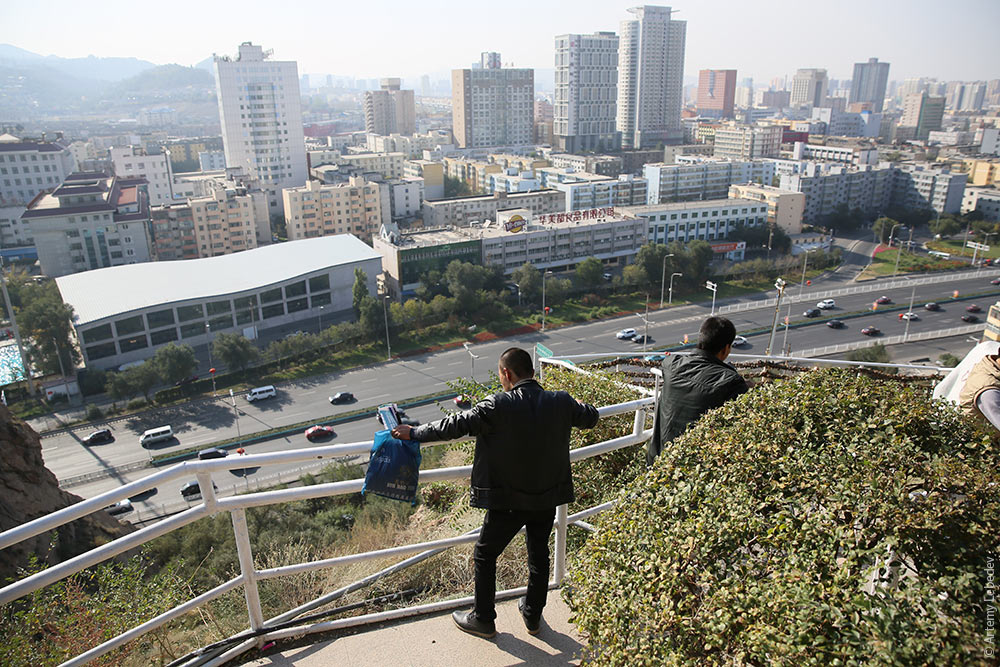 The Uyghurs are Muslims. 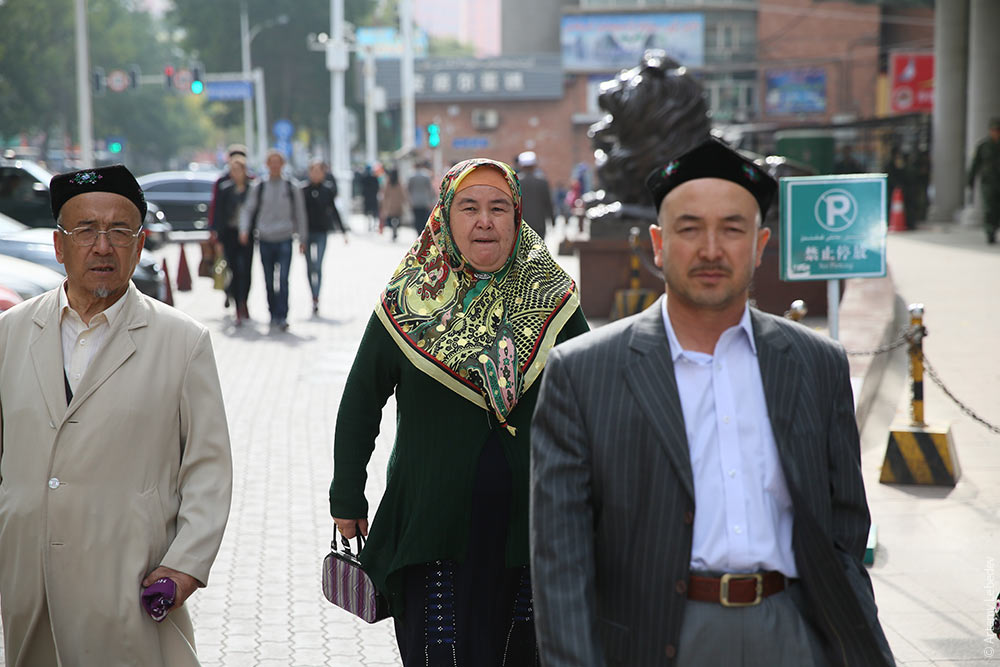 They’re a riotous bunch: carrying out a terrorist attack here, manifesting their nationalism some other way there. Hence the police officers sitting on every corner (like in Tibet). 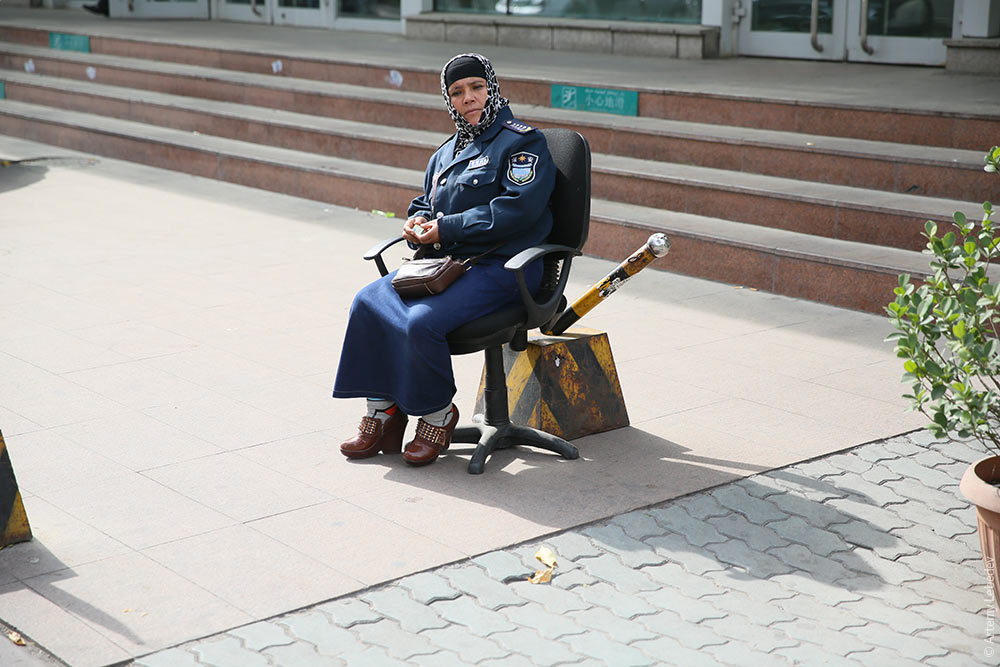 Helmets and shields are lying at the ready at every front desk. 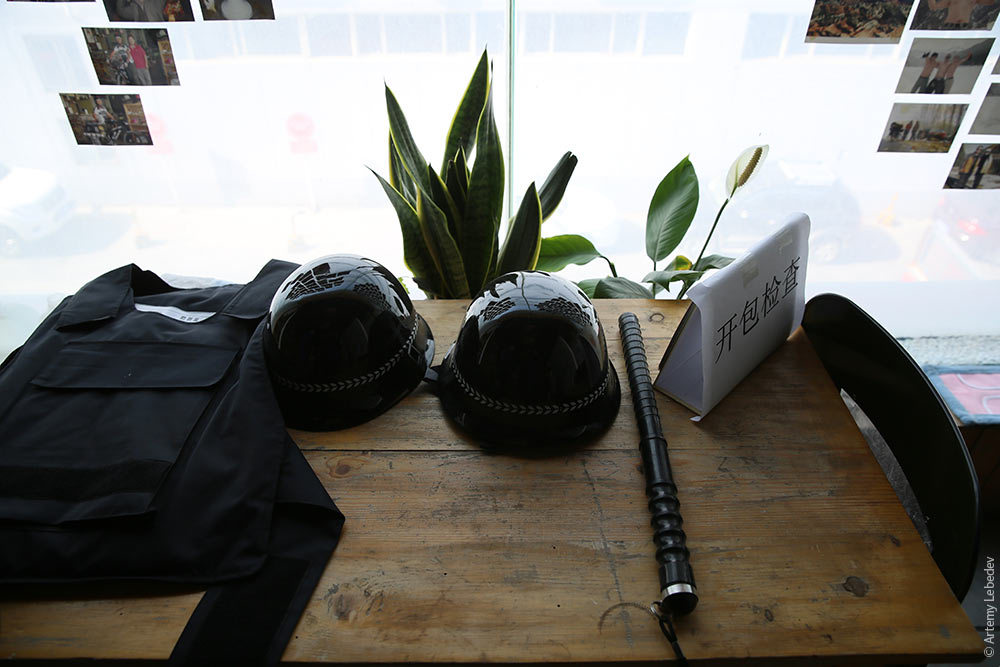 There are armed security guards everywhere. 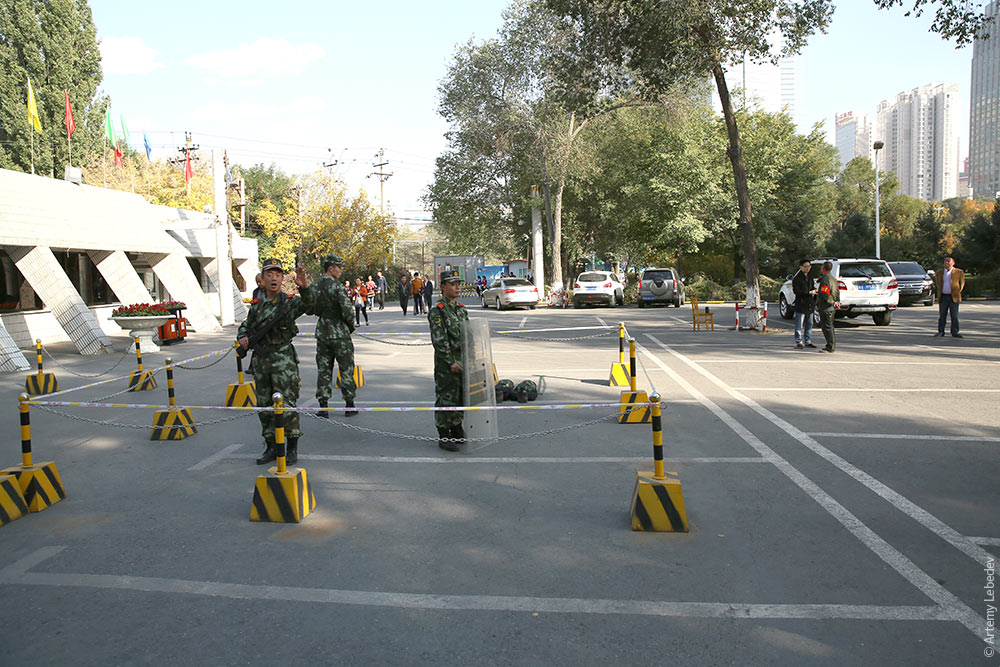 And armored vehicles at intersections. 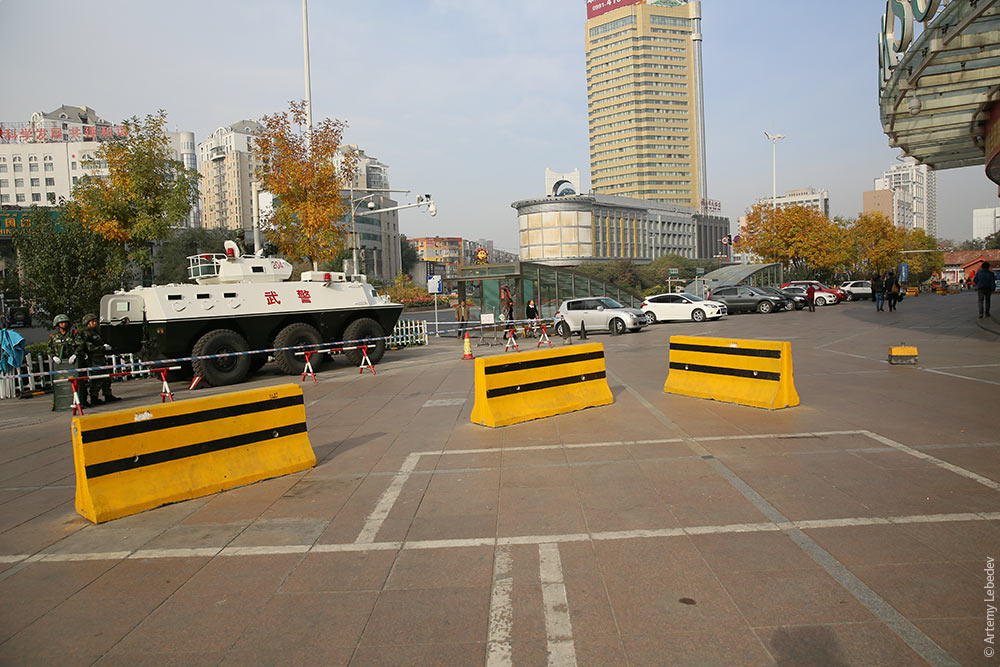 A series of posters about combatting terrorism is posted on every fence. The posters are actually strictly anti-Muslim. Don’t wear hijab, don’t grow a beard, don’t use Muslim symbols. I can’t imagine what would happen if posters like this appeared in Europe or Russia. But this is how the Chinese instill order. “Be beautiful traditional Urumqians.” That’s all. 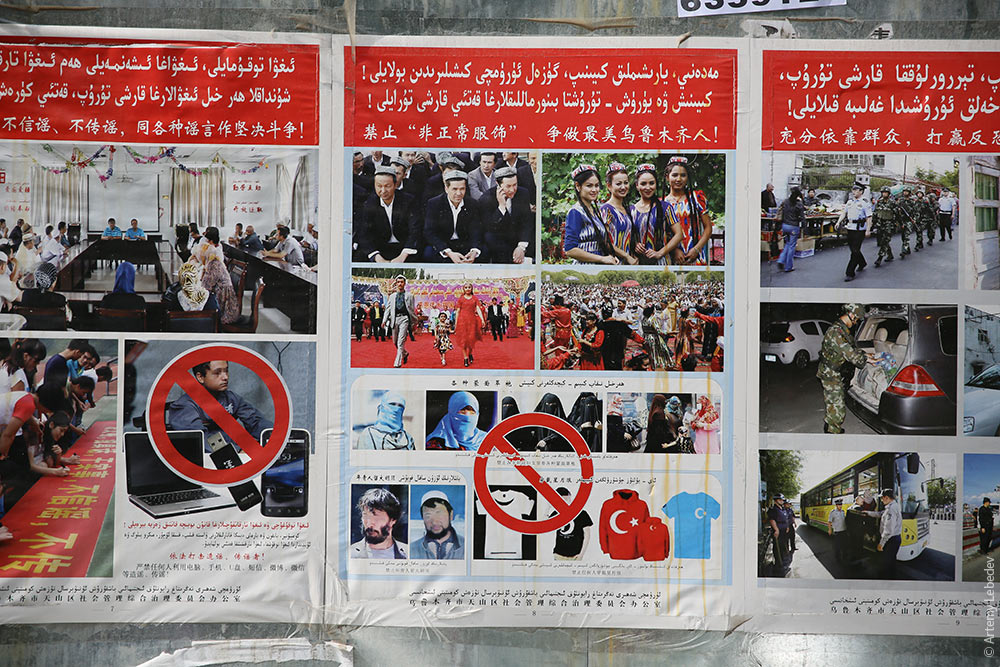 Countdown bars at a pedestrian crossing (like in Niigata). 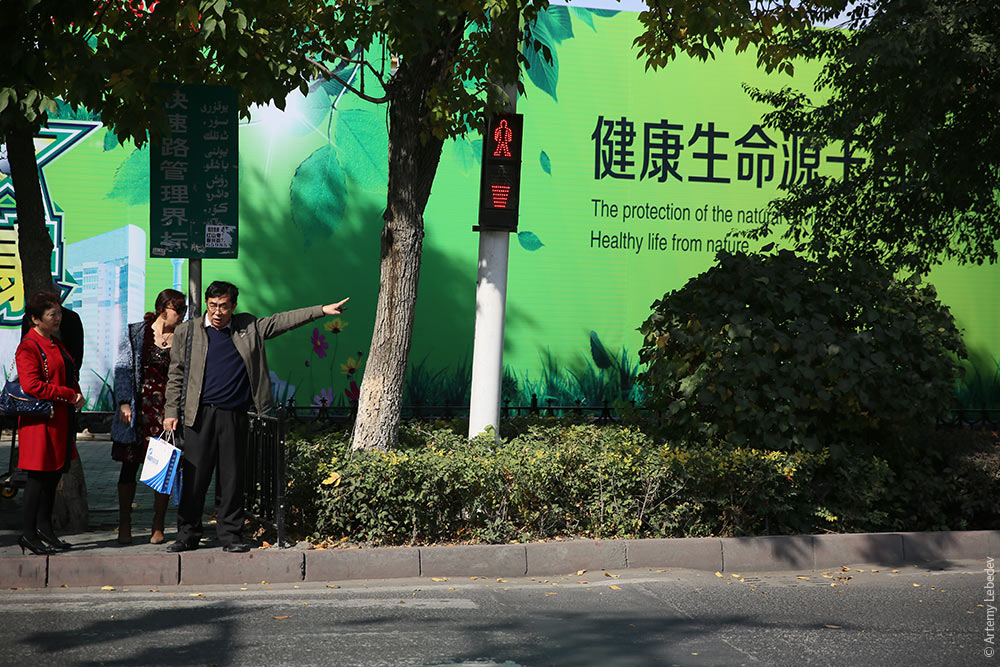 People swimming around a pond on motorized donuts. No one cares for pedals or oars anymore. 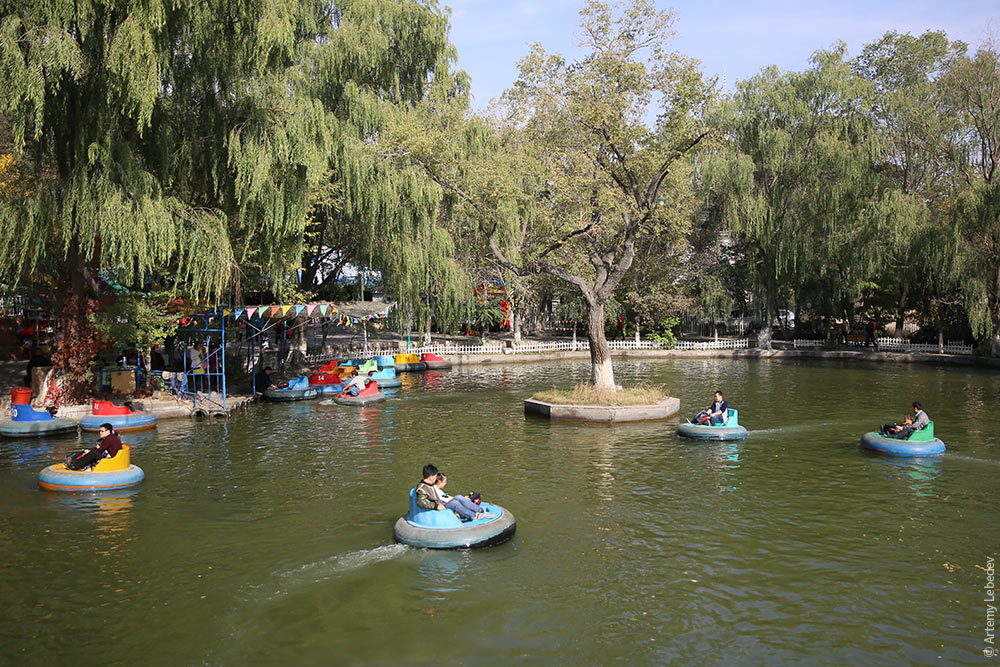 An outdoor glue trap for insects. 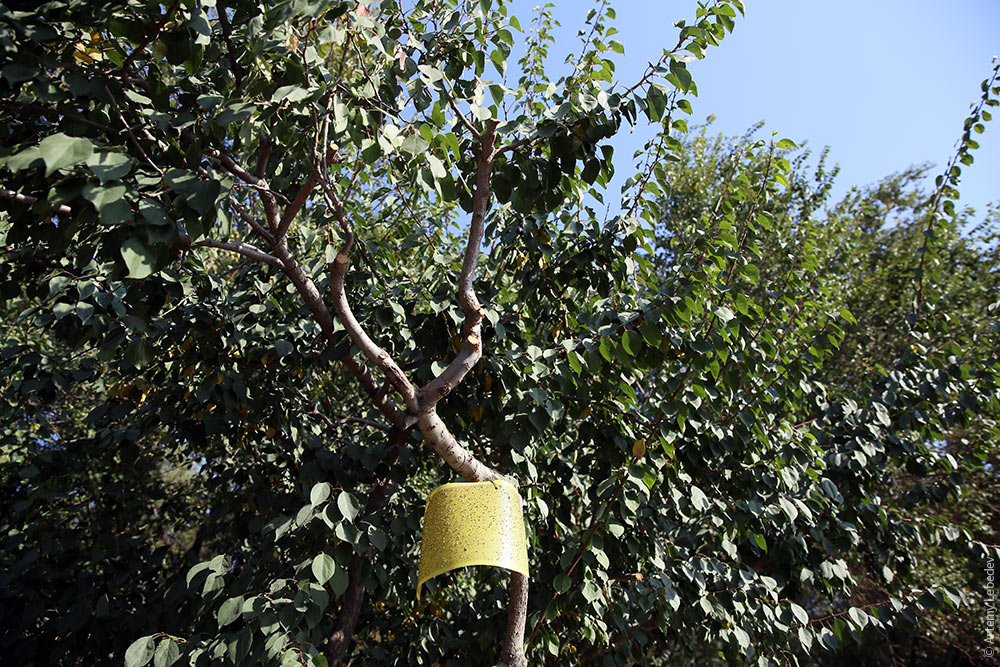 In Russia, street vendors sell rooster lollipops; here, it’s sugar dragons. 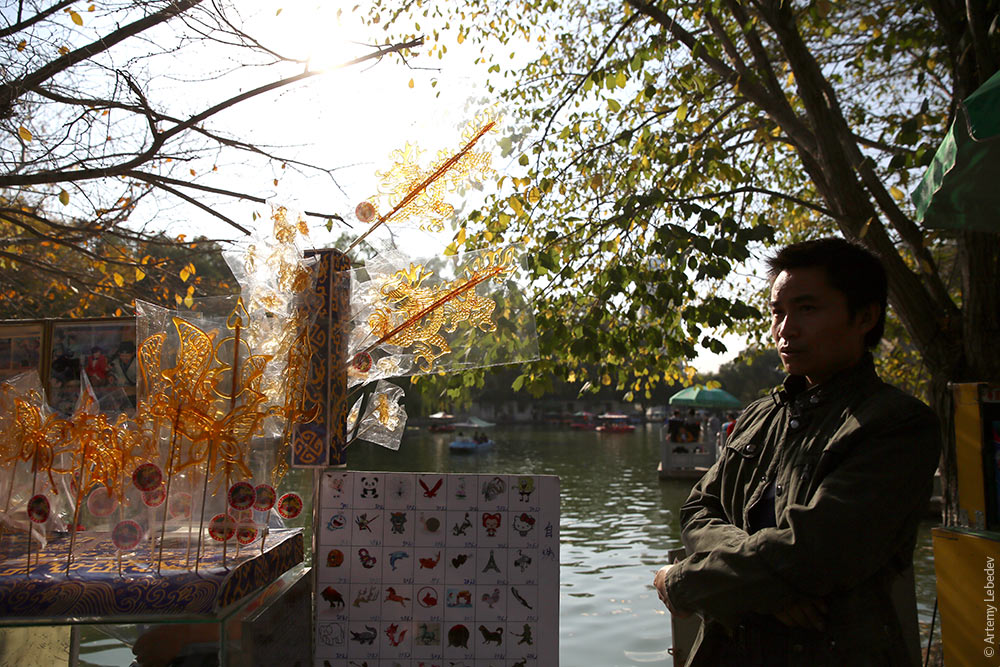 China’s favorite sweet street snack is candy apples. 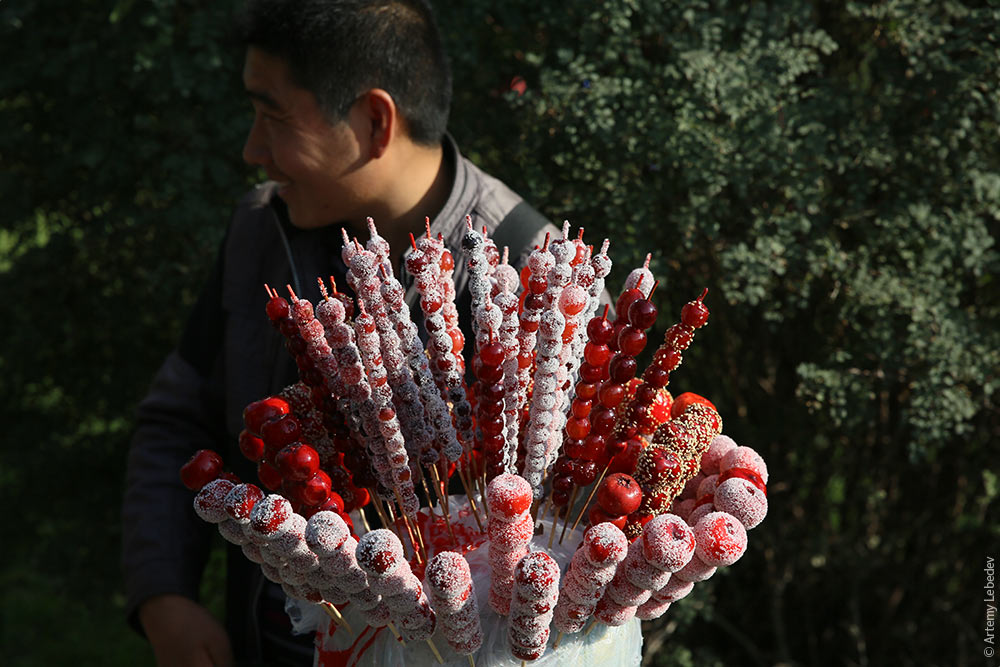 Cordyceps. A Chinese medicine. A very expensive one. It’s a parasitic fungus that lives on insects. Or rather, first the cordyceps spores attach to a fly or ant and germinate there; the insect dies, while the fungus continues to grow and is sold for huge amounts of money. 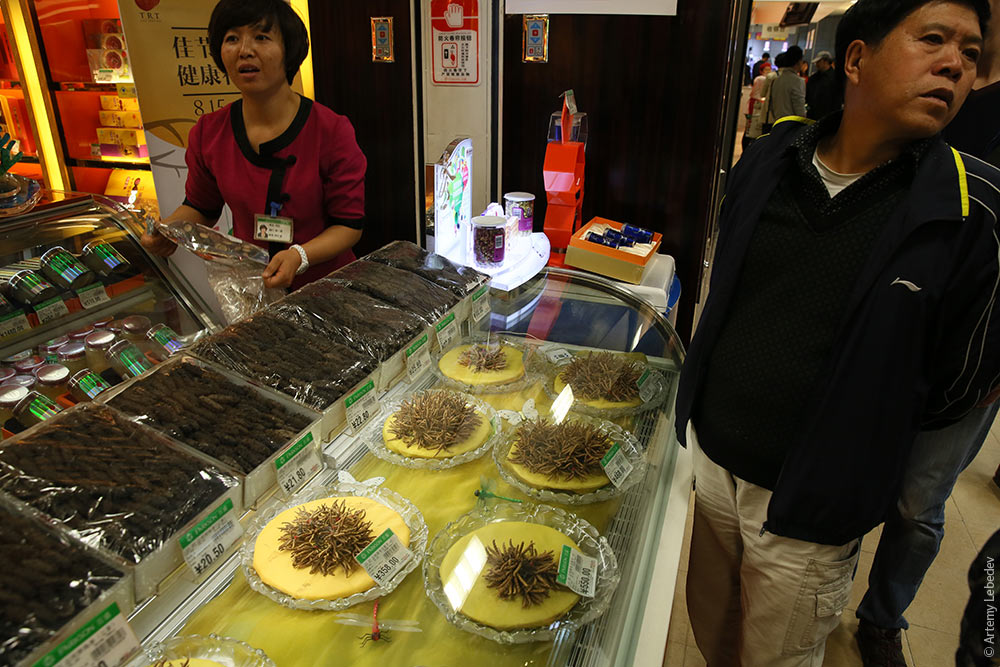 At the supermarket, customers’ handbags are placed in a cloth bag with a zipper, the end of which is locked with a device that sets off the alarm at the exit (like the security tags on clothes). 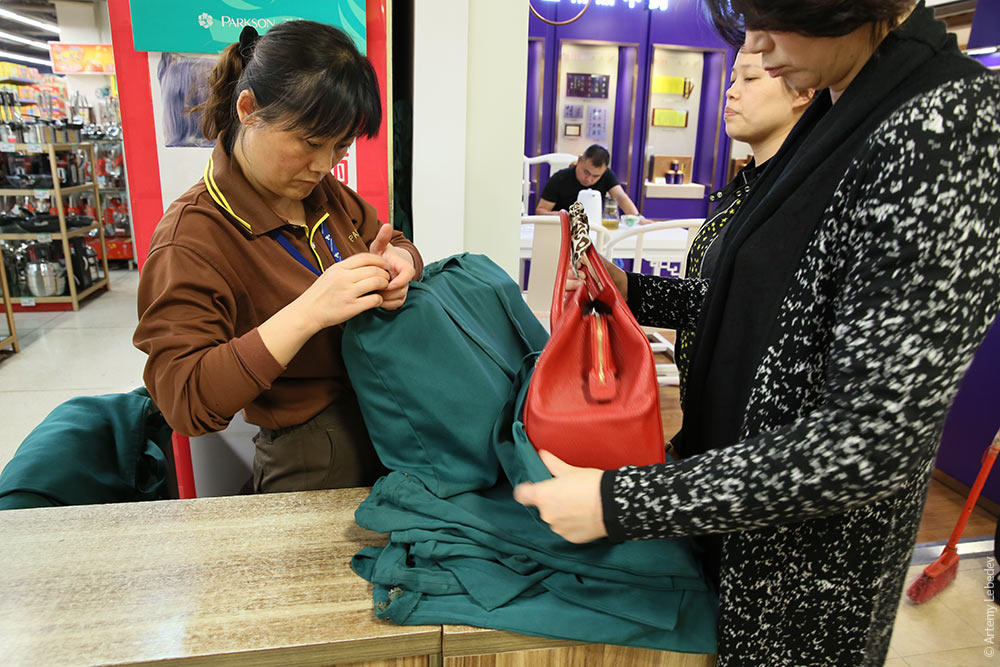 A security guard at the store. With a mysterious musket or automatic rifle of some sort. 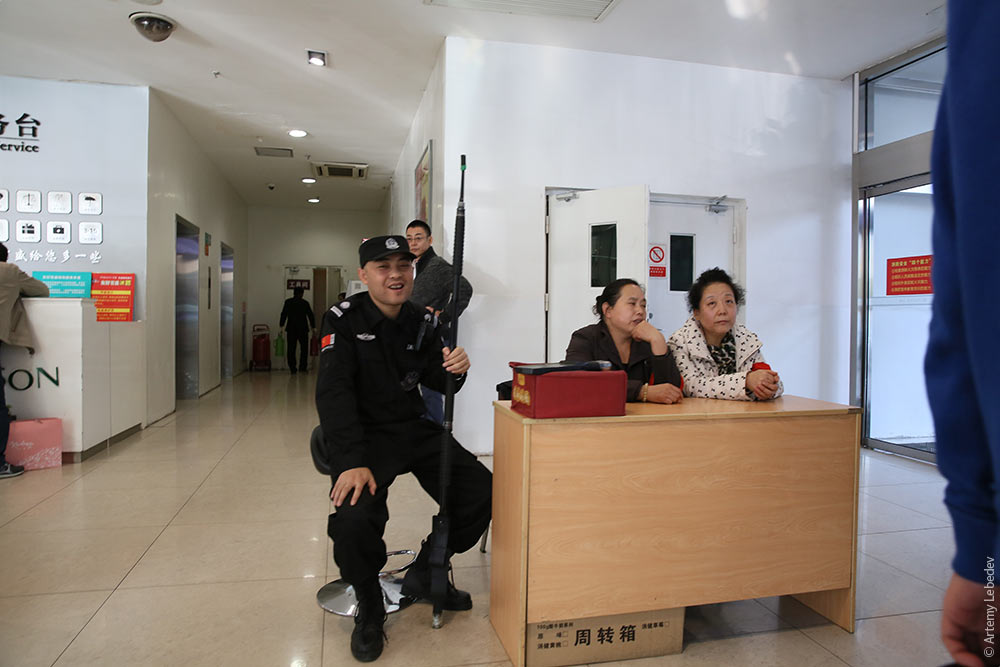 Here’s an ethnography lesson: a sash means someone is a bank employee, a coral-colored shirt means a woman is pregnant. So here we have a pregnant bank employee. 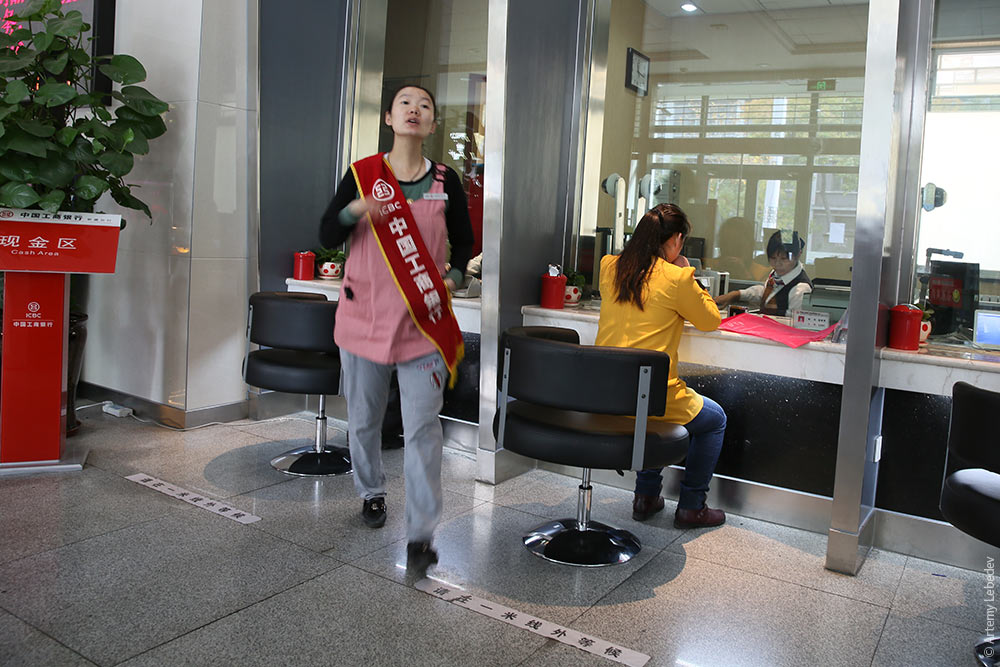 Street food. Sausages, crab sticks and a bunch of other crap. 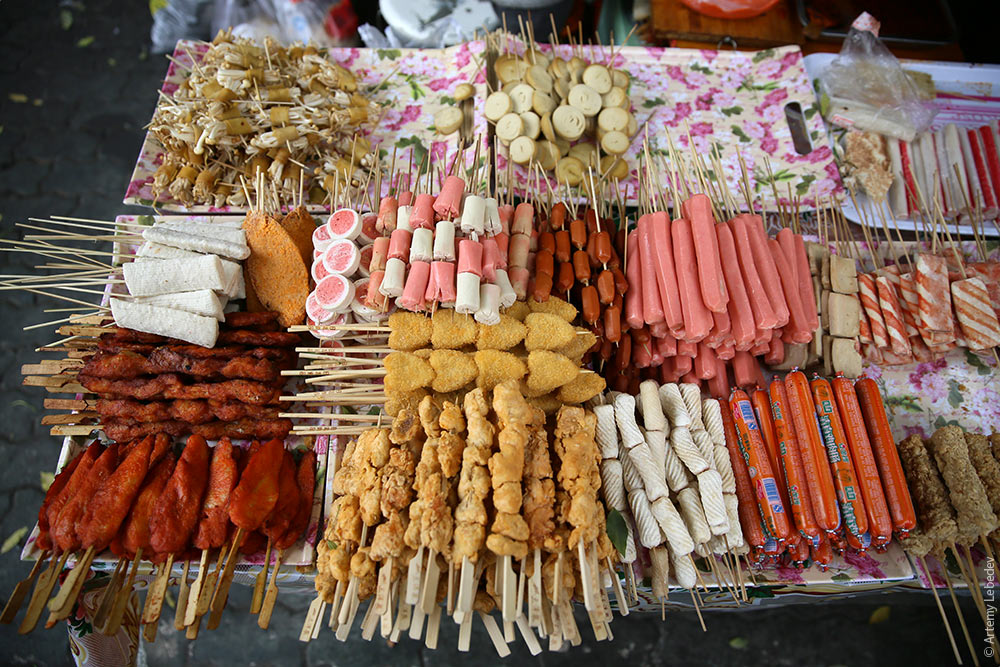 A vendor of orange-flavored water. The fountain of Kool-Aid flows through a sieve that catches the large chunks of waste. The rest is poured into cups. 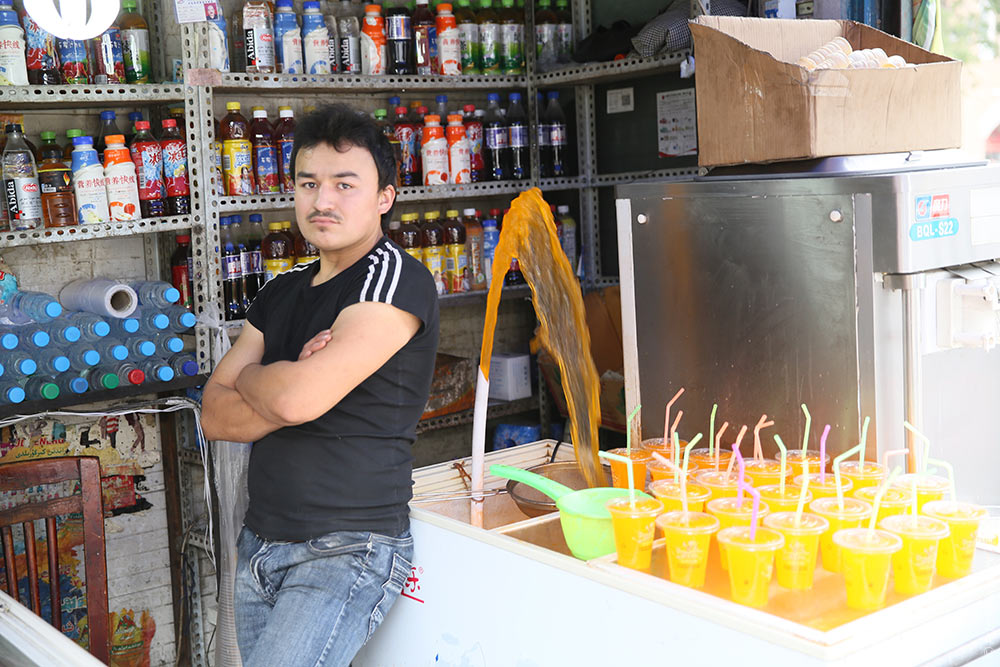 A nearby vendor sells dried hedgehogs. 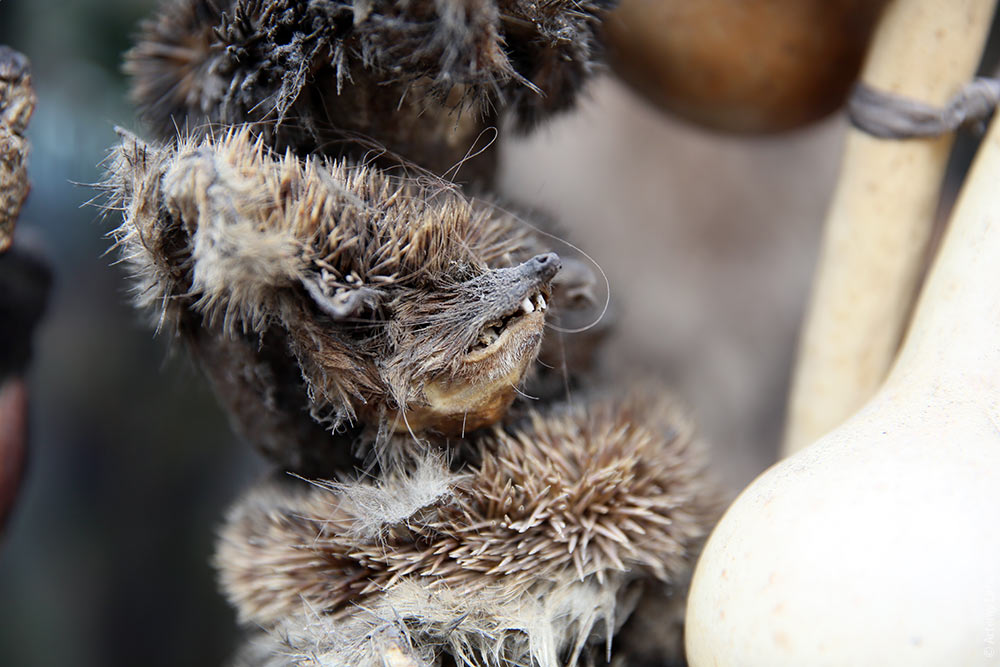 Rivulets of someone’s blood trickle from a trash dumpster. 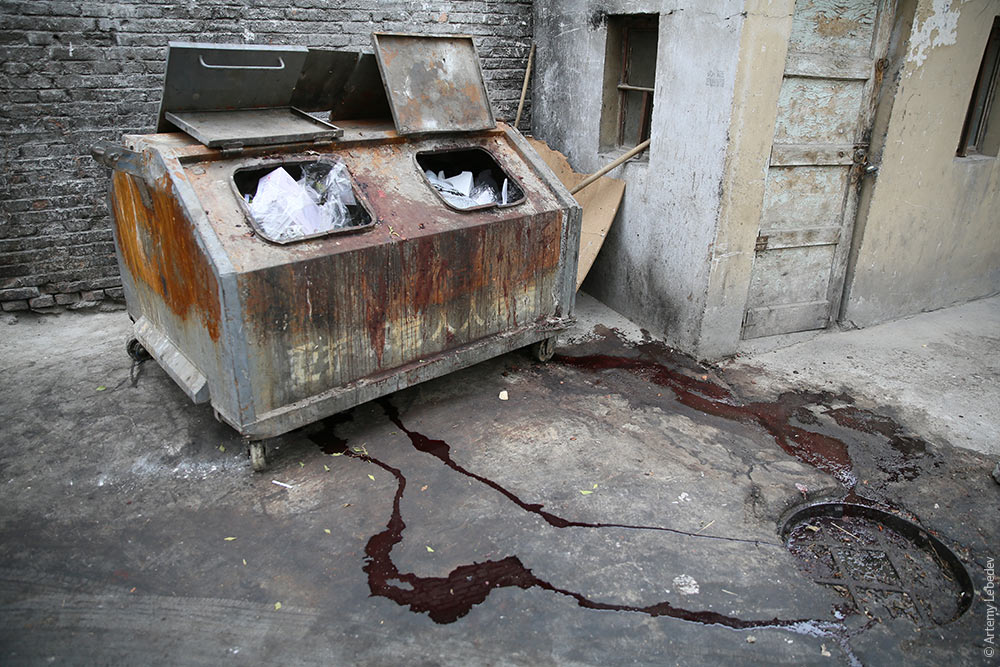 LanzhouMapWe arrive in Lanzhou and check into a hostel set up in some sort of creative complex. 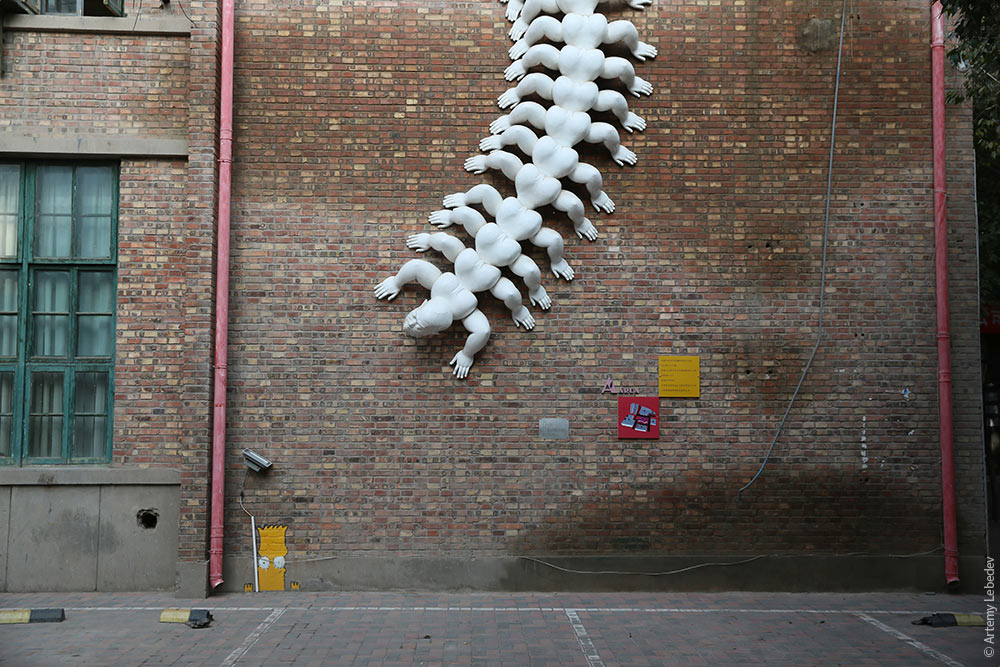 The city is huge, meaningless and under construction. 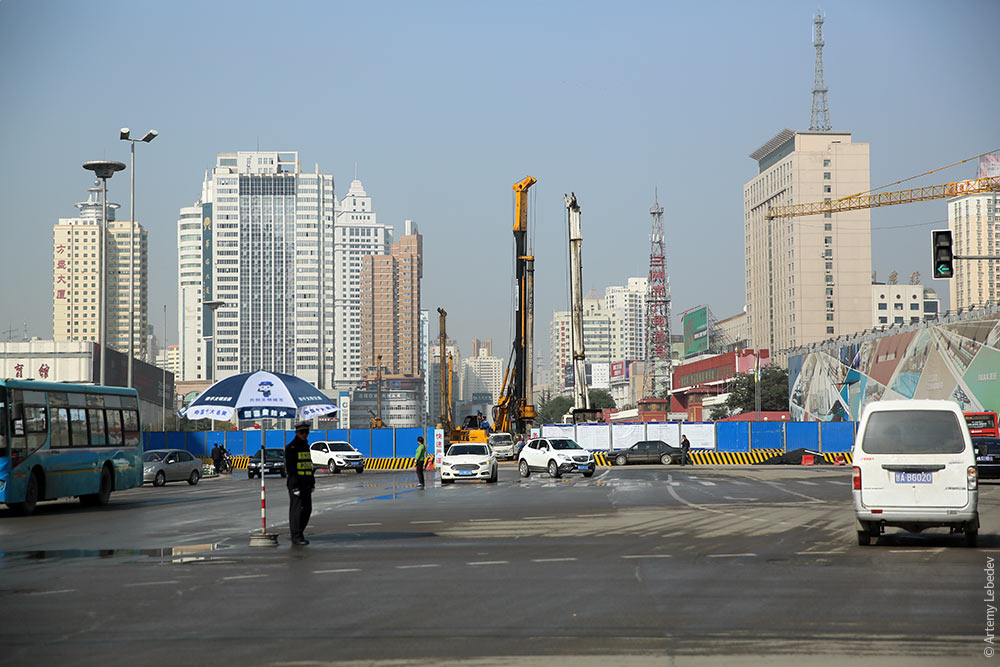 It’s hard to imagine anyone saying, “I dream of going back to Lanzhou.” 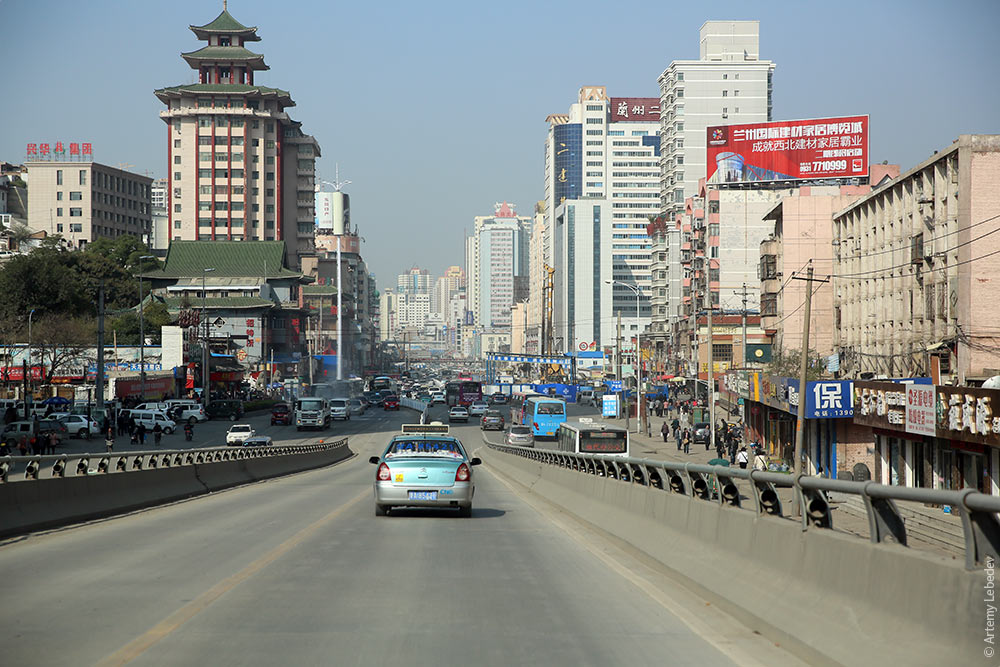 Directional signage. Hope you figure it out in time! 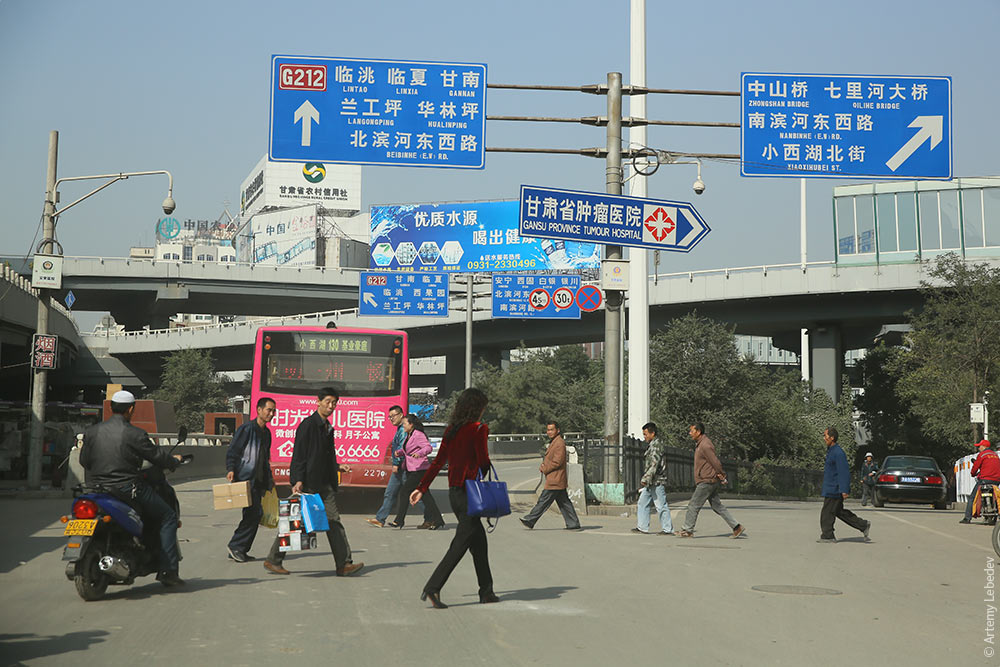 XiaheMapThe Tibetan beauty begins. 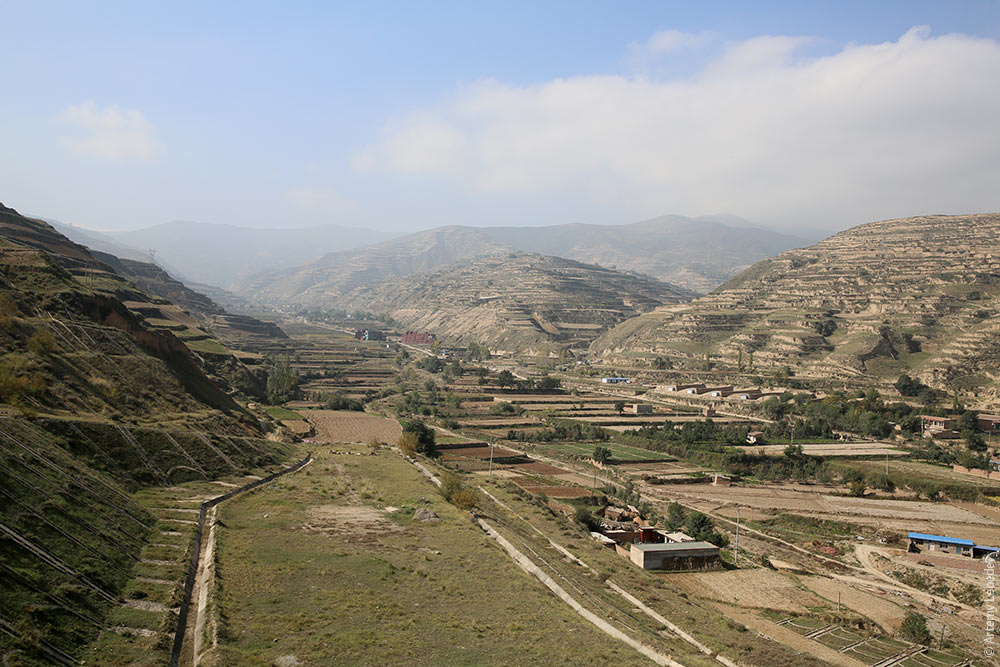 Locals. 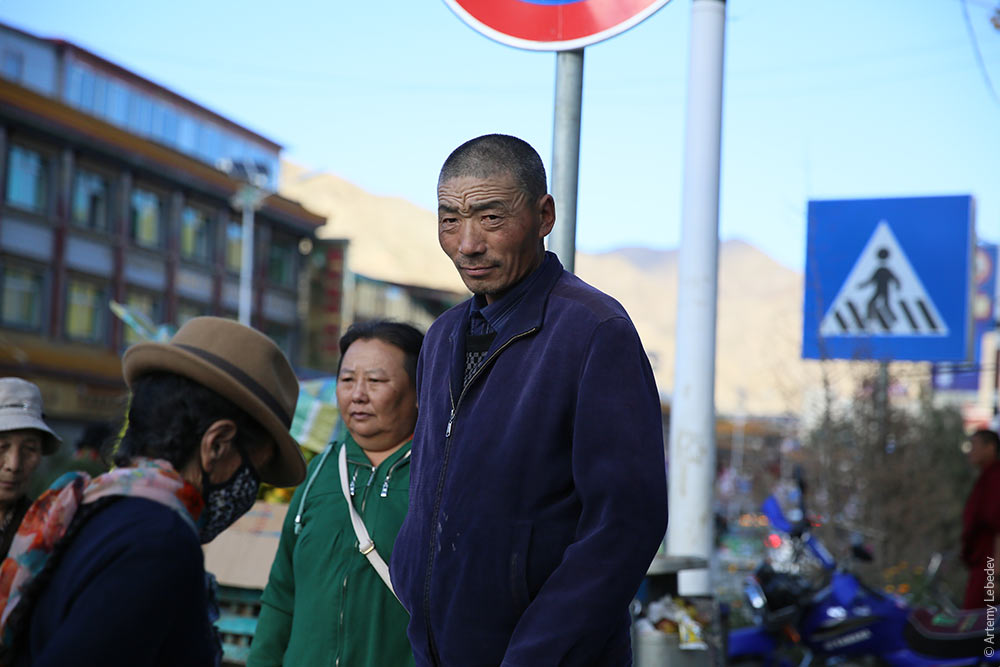 Labrang Monastery. A woman sweeps the square. 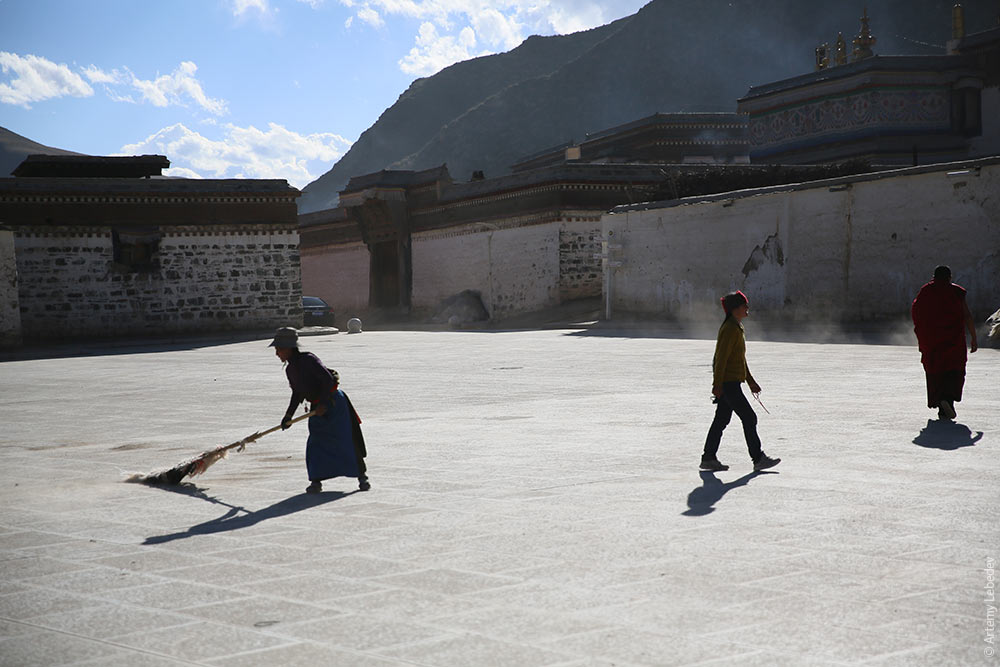 It’s the women who do the digging as well. The men stand by, watching and smoking. 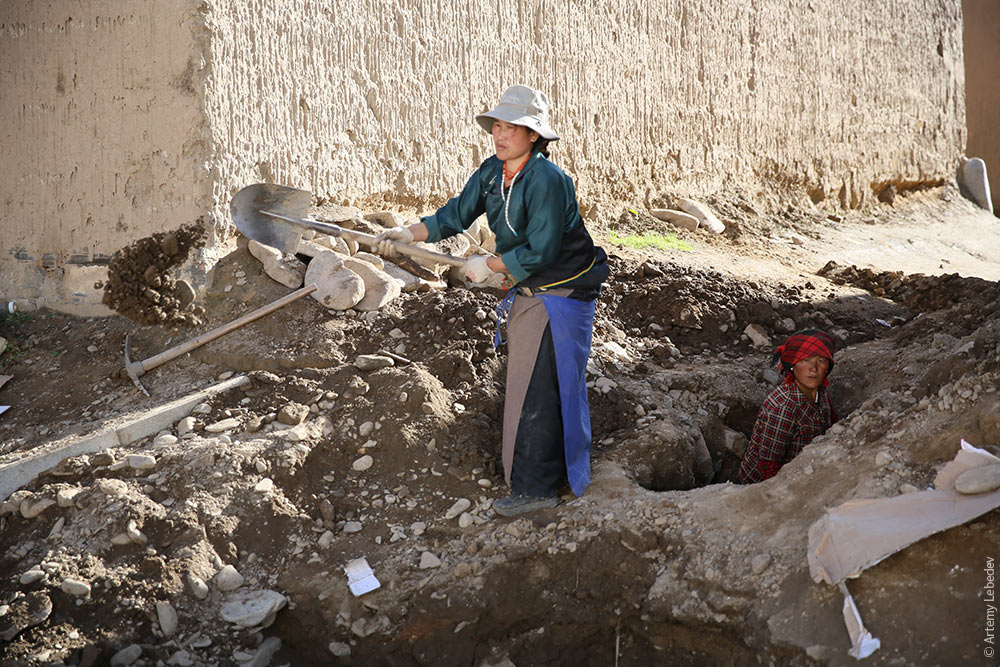 A cleaner picks up trash from the ground with two sticks, like food. Except that the sticks are half a meter long and designed to work more like scissors. 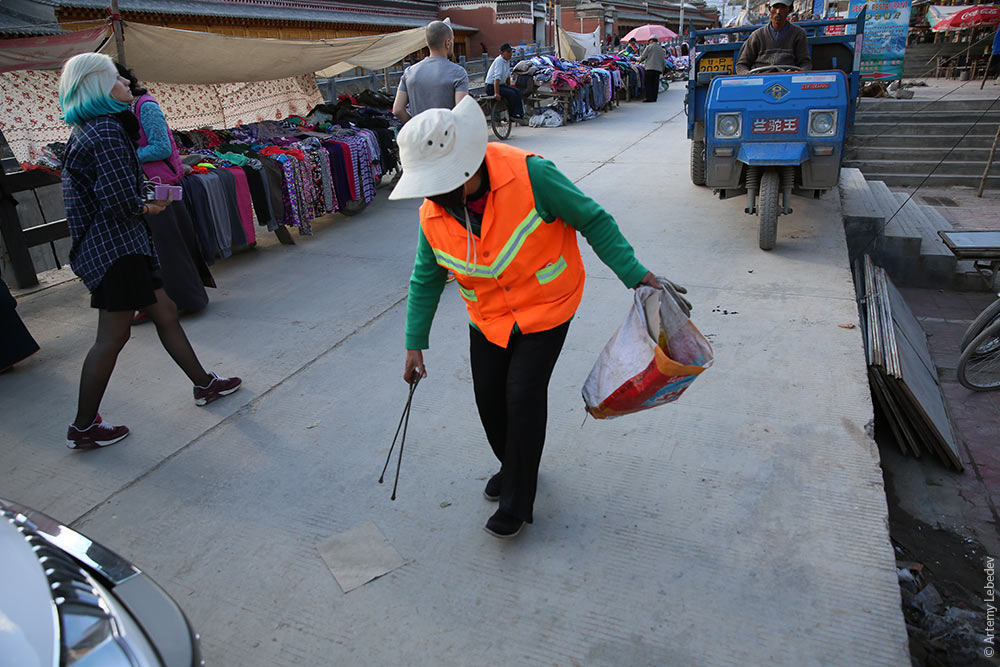 The local trash dumpsters are supposed to have two cover panels: at the top (for disposal) and on the side (for removal). 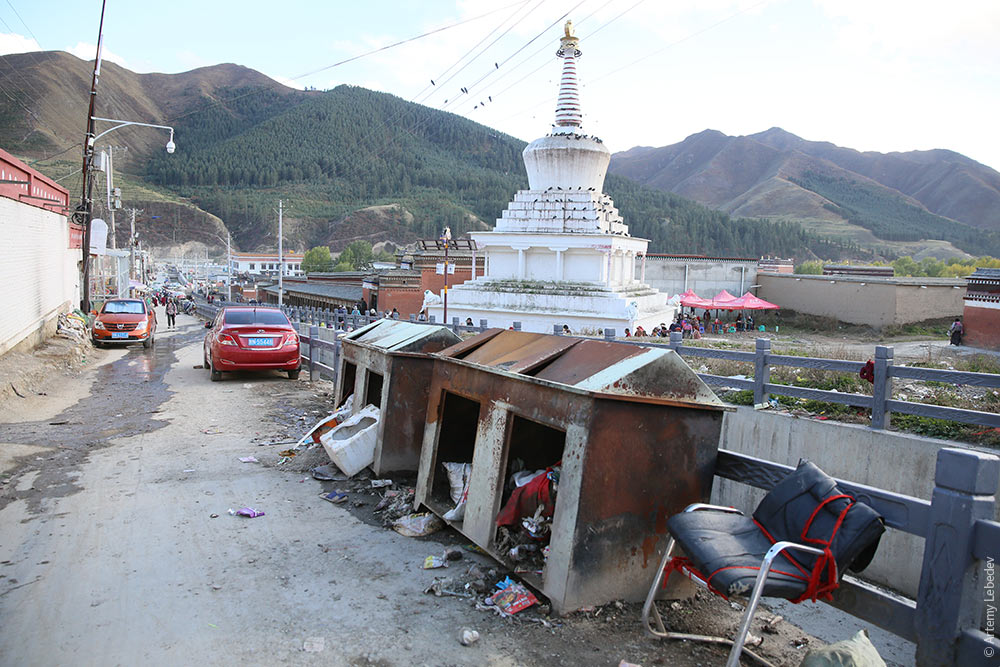 Sheep. 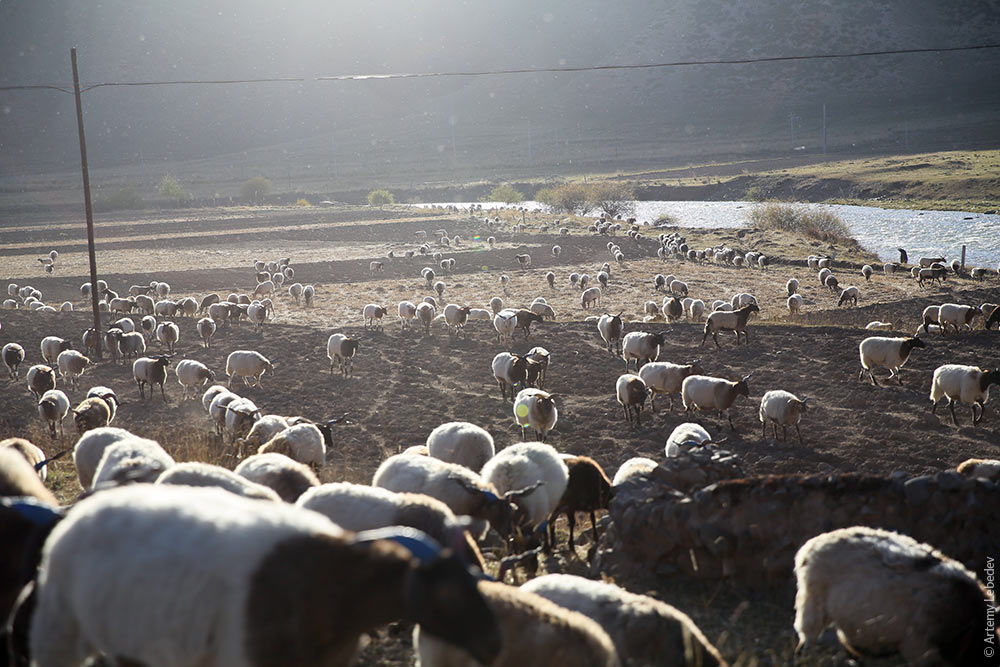 We stop in a Tibetan village that looks like a cross between Mongolia and São Tomé and Príncipe. 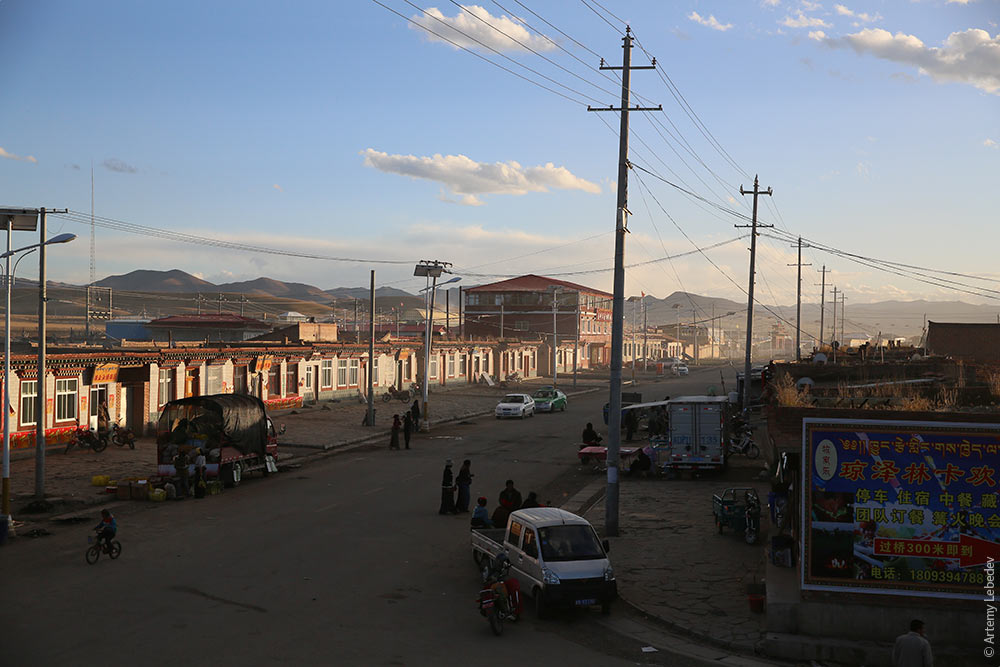 Our rooms have no bathrooms, but the hostess is kind enough to hang up the Wi-Fi password for us with electrical tape. 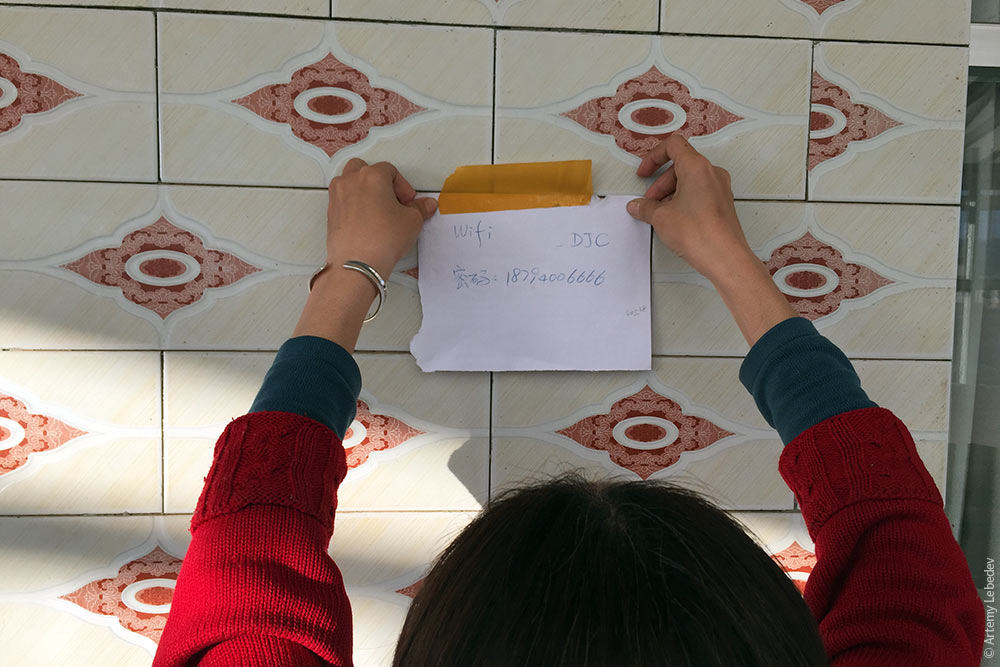 A wishy-washy window washer. 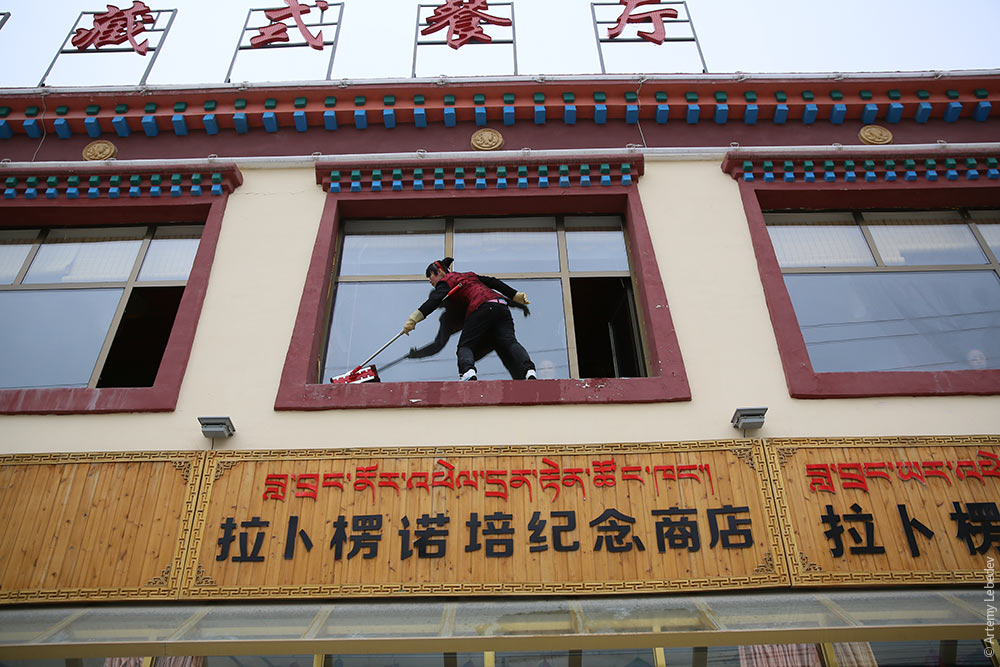 Solar panel posts are decorated with dragons. 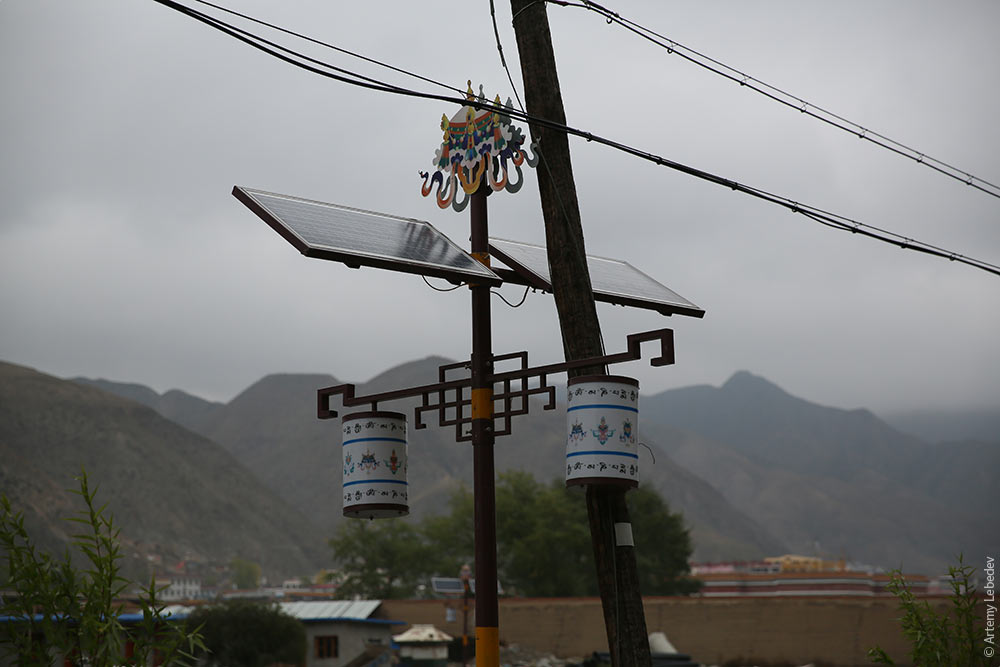 The Chinese love three-wheeled vehicles. 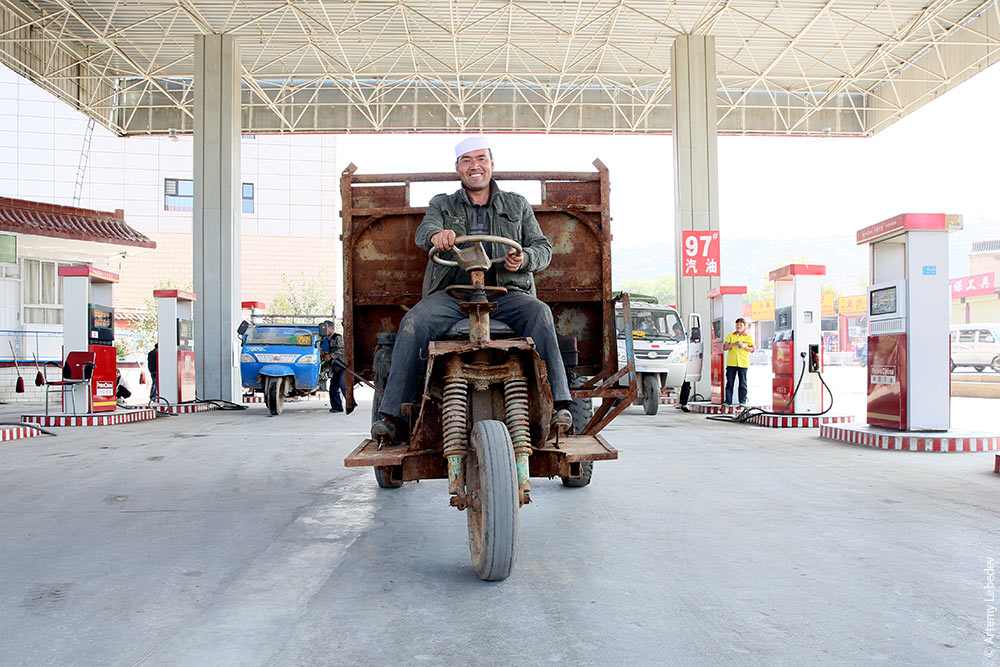 Gas stations sell chicken feet for 1.5 yuan (20 cents) each. 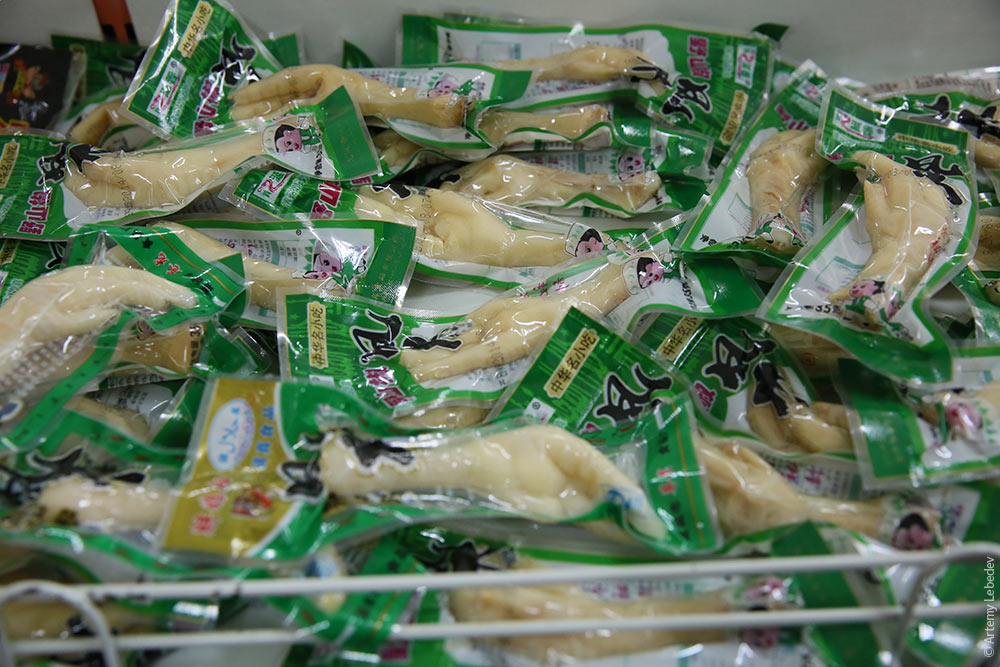 “Do not drive tiredly.” I wonder if Chinese drivers know that “Z-Z-Z” is the classic way to represent snoring in American comic books, which gained such wide usage that it’s become a universal American designation for sleep in general? Does a Chinese person understand that these are Z’s and not N’s, for instance? Or does he simply think these are some kind of dream fluids emanating from the driver’s head? 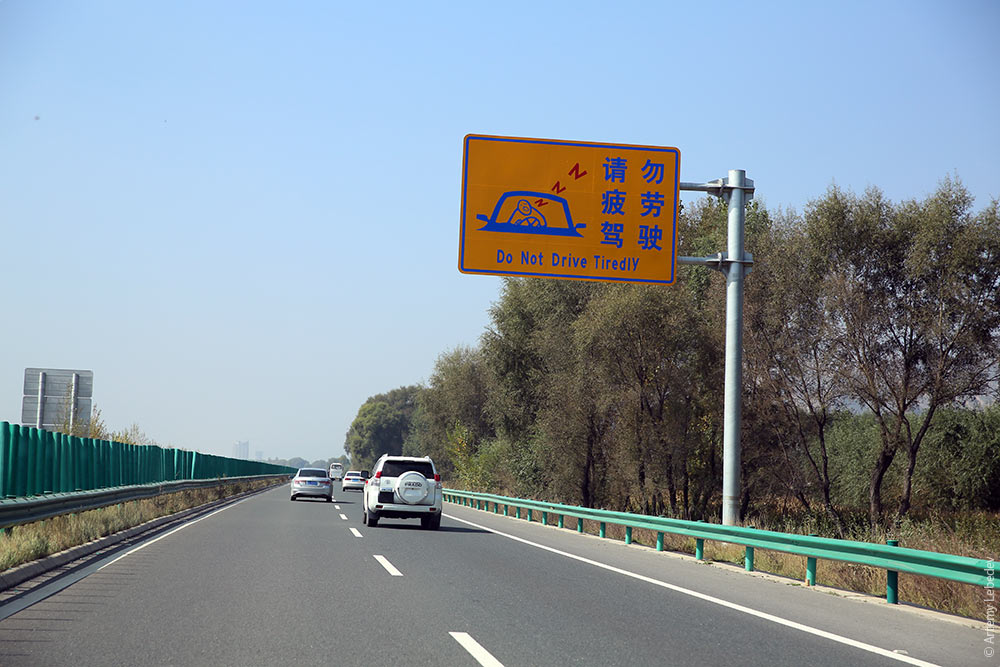 Traffic police posters are full of photos of the dead bodies of those who were reckless behind the wheel or entrusted their lives to bad drivers. Only the faces are sometimes blurred out. A bus flipped over, you say? Excellent, let’s print them all. 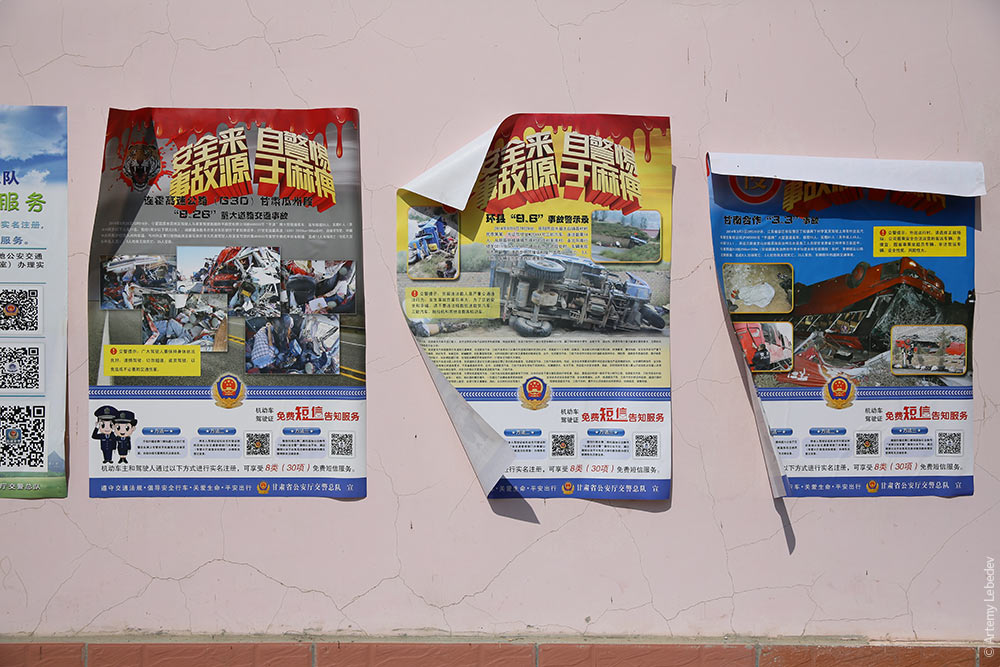 |